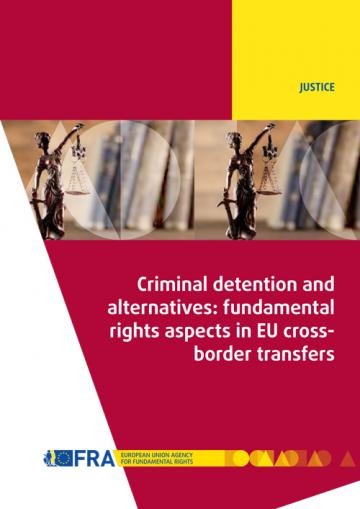Jezik
English

The report also scrutinises the use of detention in the EU, as well as available alternatives, including with respect to individuals in situations of vulnerability. Taking into consideration the rights of suspects, accused and sentenced persons and the rights of crime victims, as well as the interests of society as a whole, the report offers a timely and comprehensive assessment of the instruments’ potential from a fundamental rights perspective.
Report chapters: